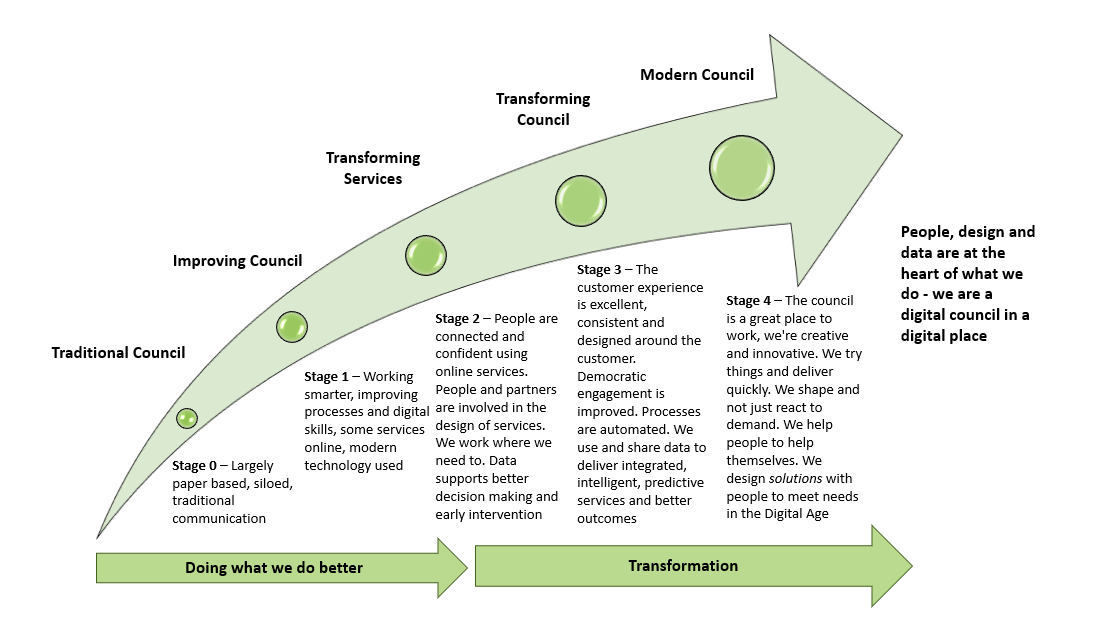Foreword about our digital vision
Cllr Peter Wharf - Portfolio Holder for Corporate Development & Change
Digital as a way of working is not just about the technology; it is always first and foremost about people. The recent COVID-19 pandemic has highlighted the value that digital can bring to our lives and the impact that this can have if not properly addressed. This is explored in considerable detail in the Equalities Impact Assessment.
Our challenge as a council is to continue to think innovatively about how we use technology, taking a fresh look at how we deliver services listening to what our customers need, saving us all time and money.
The 5G project is a great example of our commitment and provides an exciting opportunity for Dorset to be at the forefront of next generation technology. Creating a smart rural place is about using data and technology to promote economic growth, protect our unique environment and improve the lives of peoples living and working in Dorset.
Digital has a key enabling role for our transformation and COVID-19 recovery work. We will continue to work collaboratively with our partners, councillors, employees, residents and businesses to realise our corporate vision and make Dorset a great place to live, work and visit.
Matt Prosser Chief Executive Dorset Council
Having the privilege of creating a new Council has allowed us in Dorset to put digital ways of working at the heart of what we do and to deliver our corporate vision. We want to enable the majority of people or those acting on their behalf to access our services via digital means, ensuring our offer doesn’t disappoint by putting the customer at the heart of our service design.
As a council we also provide many universal services to all, and there are some people and some groups in Dorset that cannot currently use digital services directly. Often these are some of the most vulnerable in our society.
Using the efficiency gained from digital service delivery, means that we can invest more time in supporting those who are vulnerable or in need, both to ensure they get the services they require and wherever possible ensure, with support, they can access as much help and support digitally as is feasible. Our digital champions are an excellent example of this.
Representing our residents, communities and businesses across the Dorset area, we will work tirelessly to ensure the continued investment in the infrastructure needed to keep everyone connected, not a small project in a beautifully rural environment. We are committed to this and in doing so making Dorset the natural place to do business.


